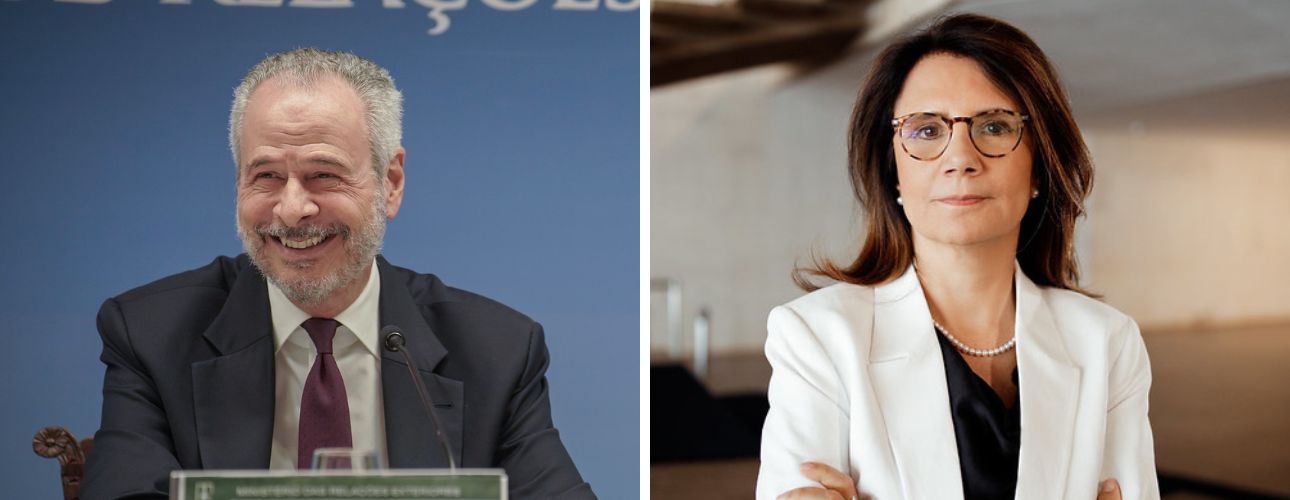Brasil announces COP30 Presidency and its powers
The Brazilian government has published a text outlining the governance structure for the upcoming climate change conference, to be held in Belém, Pará, from November 10–21, 2025.

On March 26, Brasil's Acting President Geraldo Alckmin signed a decree published in the Federal Official Gazette (Diário Oficial da União/DOU), creating the COP30 Presidency and authorizing its political appointments and advisory roles lists.
By relocating officials from the Office of the Chief of Staff (Casa Civil) and the Ministry of Foreign Affairs (Ministério das Relações Exteriores), the structure avoids additional costs while ensuring the successful hosting of the 30th Conference of the Parties (COP30) to the United Nations Framework Convention on Climate Change (UNFCCC), which will take place from 10 to 21 November in Belém (PA).
Appointed officials
According to the decree, the COP30 Presidency will operate until December 1, 2026, with the mandate to prepare, coordinate, and promote the event. In addition to defining the Presidency’s structure, the decree outlines the responsibilities of the position and the Executive Board. On January 21, President Luiz Inácio Lula da Silva announced the appointees: Ambassador André Corrêa do Lago, Secretary for Climate, Energy, and Environment at the Ministry of Foreign Affairs (MRE), will serve as COP30 President. Ana Toni, National Secretary for Climate Change at the Ministry of the Environment and Climate Change (Ministério do Meio Ambiente e Mudança Climática/MMA), will act as Chief Executive Officer (CEO) of the conference.
In addition to leading the main procedures for hosting governments, technicians, experts, and members of civil society around the world, the COP30 President is the main political leader in promoting consensus among negotiators and is responsible for catalyzing the engagement of non-state actors capable of generating tangible outcomes to climate change.
This responsibility includes engaging in an open and permanent dialogue with more than 190 countries and multiple international organizations on the more than 100 items on the COP30 agenda. The Executive Director's responsibilities include assisting the President in defining guidelines, implementing COP30-related actions, and coordinating COP30-related work fronts.
COP30 President's background
Ambassador André Corrêa do Lago is an experienced climate negotiator. He holds a degree in Economics from the Federal University of Rio de Janeiro (UFRJ), and joined the diplomatic service in 1982. Throughout his career, he has held positions in Brasil and abroad, focusing on energy, climate, and environmental policy, as well as international trade promotion. At the Ministry of Foreign Affairs, he led the energy and environment departments and served as Brasil’s chief negotiator at major environmental conferences, including Rio+20.
Throughout his career, he has held positions in Brazil and abroad, focusing on energy, climate, and environmental policy, as well as international trade promotion. At the Ministry of Foreign Affairs, he led the energy and environment departments and served as Brasil’s chief negotiator at major environmental conferences, including Rio+20.
His postings include embassies in Madrid, Prague, Washington, and Buenos Aires, as well as the Mission to the European Union in Brussels. He was Brasil’s Ambassador to Japan (2013–2018) and India (2018–2023). Since March 2023, he has been Secretary for Climate, Energy, and Environment at Itamaraty, having previously led Brasil’s delegation at COP28 (Dubai, UAE) and COP29 (Baku, Azerbaijan).
COP30 CEO's career
Ana Toni, an economist with a Ph.D. in Political Science, had a long career promoting projects and policies focused on social justice, the environment, and climate change. She served as Executive Director of the Climate and Society Institute - ICS (2015-2022), Chair of the Board of Greenpeace International (2010-2017), Director of the Ford Foundation in Brasil (2003-2011), and ActionAid Brasil (1998-2002). She has been a consultant for the Gold Standard Group, Baobá Fund for Racial Equity, Light and Vibra Energia, IPAM, among others. Furthermore, she is a member of the Network of Brazilian Women Leaders for Sustainability.

